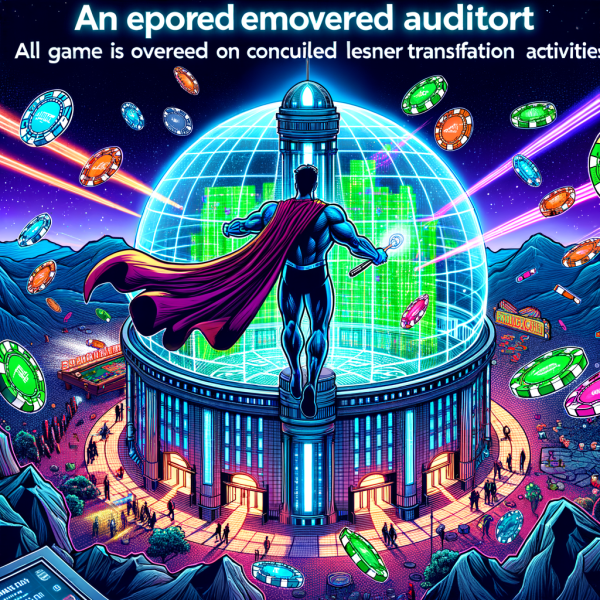Understanding Blockchain Technology and Its Principles
Blockchain technology is a decentralized ledger system that allows for the secure and transparent recording of transactions. Each transaction is grouped into blocks, which are then linked together in chronological order to form a chain. This technology operates on principles of transparency, security, and immutability. Each participant on the network has access to the same ledger, allowing all parties to verify transactions without the need for a central authority.
At its core, blockchain employs cryptographic techniques to ensure that once information is recorded, it cannot be altered without the consensus of the network. This decentralized nature is what sets blockchain apart from traditional databases, where a single entity holds control over the data. The applications of blockchain extend beyond cryptocurrencies, with potential use cases in various industries including finance, healthcare, and, notably, gambling.
By using smart contracts—self-executing contracts with the terms of the agreement directly written into code—blockchain can automate processes and ensure that rules are enforced without manual intervention. This feature holds significant implications for casino operations, where ensuring fairness and adherence to regulations is crucial. With such characteristics, blockchain presents an opportunity to enhance the credibility of gambling establishments.
Given the technological underpinnings of blockchain, it’s evident that the principles of transparency, security, and decentralization can address some of the longstanding issues in the casino industry, where trust is paramount but often lacking.
The Current State of Transparency in Casinos Today
The gambling industry has faced scrutiny related to transparency and fairness for years. Traditional casinos often operate under opaque regulatory frameworks, where players must rely on the integrity of the casino operators. Issues of trust arise, particularly in online gambling, where players frequently question the honesty of games and the payout rates.
Many casinos use random number generators (RNGs) to ensure fair play; however, the algorithmic nature of these systems is complex and not easily understood by the average player. As a result, players may feel apprehensive about the legitimacy of the games they participate in. Moreover, the lack of accessible data and the complexity of gambling regulations can further exacerbate doubts about fairness and transparency.
Additionally, the potential for fraud and manipulation exists, with instances of operators taking advantage of players’ lack of knowledge. Although regulatory bodies exist to oversee casino operations, their effectiveness and transparency can vary significantly across jurisdictions. The need for a more robust system that promotes trust and accountability is evident.
In light of these challenges, many stakeholders in the gambling industry are seeking innovative solutions to enhance transparency. Enter blockchain technology—a tool that has the potential to redefine how casinos operate and how players perceive them.
How Blockchain Can Enhance Trust in Gambling Operations
Blockchain technology can significantly enhance trust in gambling operations by providing players with verifiable proof of game fairness and integrity. By recording every transaction and game outcome on a public ledger, players can independently verify results and confirm that the games are not rigged. This level of transparency can lead to increased confidence among players, encouraging them to participate more freely.
Moreover, the implementation of blockchain can facilitate provably fair gaming mechanisms. These mechanisms allow players to verify the fairness of each game round by utilizing cryptographic algorithms. For instance, players can check the outcome of a spin in a slot machine against the blockchain record, ensuring that the result was not manipulated after the fact.
In addition to game integrity, blockchain can streamline payment processing in casinos. The use of cryptocurrency as a medium for transactions reduces the need for intermediaries, leading to faster payouts and lower fees. This transparency in financial transactions builds trust with players who are often wary of withdrawal delays or hidden fees associated with traditional banking methods.
Ultimately, the adoption of blockchain technology in gambling operations has the potential to create a more transparent ecosystem that prioritizes player trust. By enabling verifiable transactions and fair gameplay, blockchain may help to mitigate many of the existing concerns about the integrity of casinos.
Potential Challenges of Implementing Blockchain in Casinos
Despite the promising benefits of blockchain technology in the gambling industry, several challenges must be addressed before widespread implementation can occur. One of the most significant hurdles is regulatory compliance. The gambling industry is heavily regulated, and integrating blockchain technology into existing frameworks can present legal complexities that must be navigated carefully.
Additionally, there is the issue of technological adoption. Many casino operators may lack the necessary knowledge and technical infrastructure to implement blockchain solutions effectively. Training personnel and updating systems can require a significant investment of time and resources, which can be a deterrent for some operators.
Privacy concerns also arise with blockchain’s transparency. While players may desire verification of their games, they may also expect a level of anonymity in their transactions. Balancing transparency with privacy is a challenging task that requires innovative solutions, such as zero-knowledge proofs, which can allow for verification without revealing sensitive information.
Lastly, the perception of blockchain technology remains mixed among the general public. While cryptocurrency and blockchain are gaining popularity, there remains a segment of the population that is skeptical of these technologies. Overcoming this skepticism and educating potential players about the benefits of blockchain in casinos is crucial for successful adoption.
Case Studies: Successful Blockchain Integration in Gaming
Several casinos and online gaming platforms have begun to explore the integration of blockchain technology with promising results. One notable example is the online casino FunFair, which utilizes blockchain to facilitate fair gaming and transparent transactions. FunFair’s platform allows players to verify game outcomes through smart contracts, offering a level of transparency that traditional online casinos struggle to achieve.
Another case study is the Singapore-based casino, Resorts World Sentosa, which has explored blockchain applications for cashless gaming experiences. By adopting blockchain for transactions, the casino aims to enhance operational efficiency while ensuring secure and transparent betting processes. The integration of blockchain has the potential to streamline operations and improve player trust simultaneously.
The online poker platform, Virtue Poker, is yet another example of successful blockchain integration. By using Ethereum’s blockchain to power its operations, Virtue Poker allows players to take part in decentralized poker games where outcomes and transactions are publicly verifiable. This model has garnered interest among poker enthusiasts looking for a fair and transparent gaming environment.
These case studies illustrate that while challenges exist, there are also successful implementations of blockchain technology in the gaming industry. As more operators recognize the potential benefits, we may see an increasing trend towards transparency and trust in gambling operations.
The Future: Will Blockchain Truly Revolutionize Casinos?
The potential for blockchain to revolutionize the casino industry is significant, and many believe that as the technology matures, it will become an integral part of gambling operations. With growing public concern about transparency and fairness, blockchain’s ability to provide verifiable outcomes and secure transactions aligns well with the industry’s need for trust.
However, the full realization of blockchain’s benefits in casinos won’t happen overnight. A gradual shift in perception, regulatory frameworks, and technological adoption will be critical. As more case studies emerge and successful implementations gain traction, operators may find it easier to justify making the investment in blockchain technology.
In addition, as players become increasingly informed about the advantages of blockchain, demand for transparency may drive more casinos to adopt these solutions. The combination of player demand, regulatory support, and technological advancements will shape the future landscape of gambling.
Ultimately, while blockchain may not make casinos 100% transparent, it certainly has the potential to bring about a new level of accountability and trust that could transform the industry. The path forward will involve collaboration among stakeholders, education for players, and a willingness to innovate.
| Challenges | Solutions |
|---|---|
| Regulatory compliance | Work closely with regulators |
| Technological adoption | Invest in training and infrastructure |
| Privacy concerns | Explore zero-knowledge proofs |
| Public skepticism | Educate consumers on blockchain benefits |
Q&A Section
Q: What is blockchain technology?
A: Blockchain is a decentralized ledger system that securely records transactions across a network, ensuring transparency and immutability.
Q: How can blockchain enhance trust in casinos?
A: It allows for verifiable game outcomes and fair play, enabling players to independently verify the legitimacy of games.
Q: What are the challenges of implementing blockchain in casinos?
A: Challenges include regulatory compliance, technological adoption, privacy concerns, and public skepticism.
Q: Are there successful examples of blockchain in casinos?
A: Yes, platforms like FunFair, Resorts World Sentosa, and Virtue Poker demonstrate successful blockchain integration in gaming.
Q: Will blockchain completely revolutionize casinos?
A: While it may not create 100% transparency, blockchain can significantly enhance trust and accountability in the casino industry.






Oh sure, because we all know how well trust works in the gambling industry. Blockchain is just going to make everything sparkly and perfect, right? 😂
Yeah, let’s just throw blockchain at the problems in casinos and call it a day! That’ll definitely solve everything. Good luck with that! 🙄